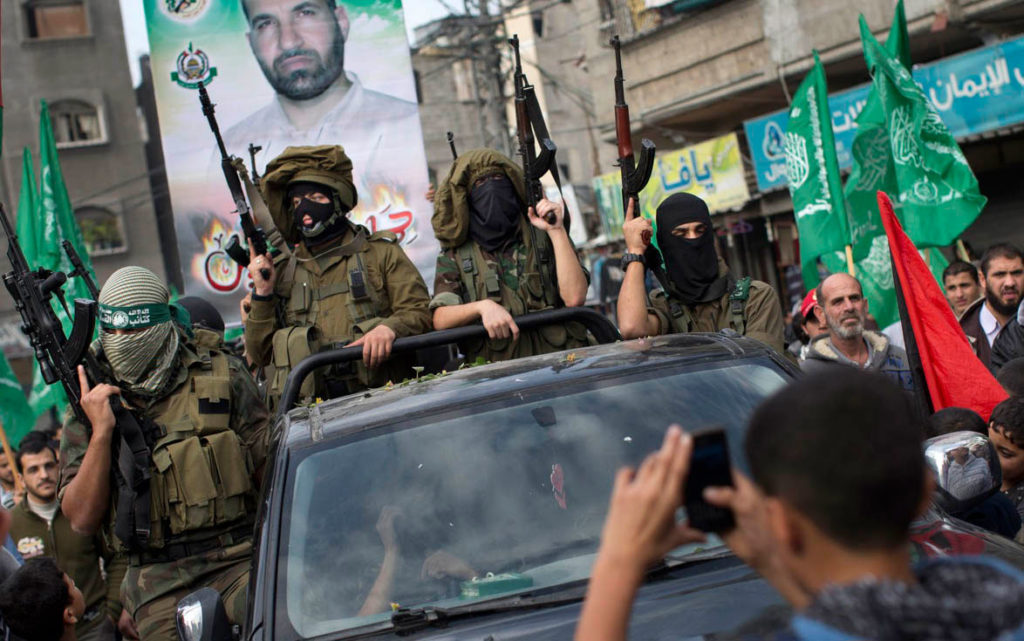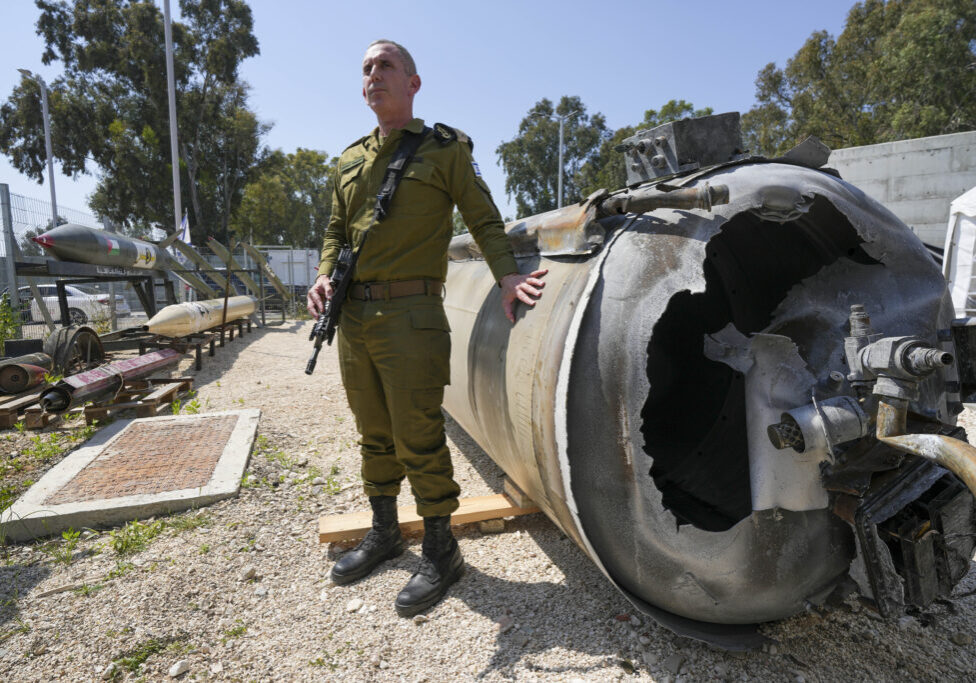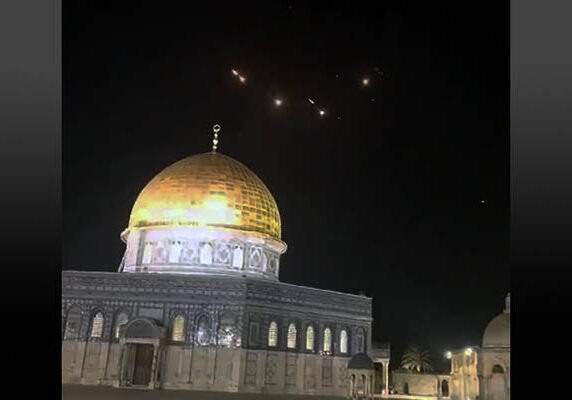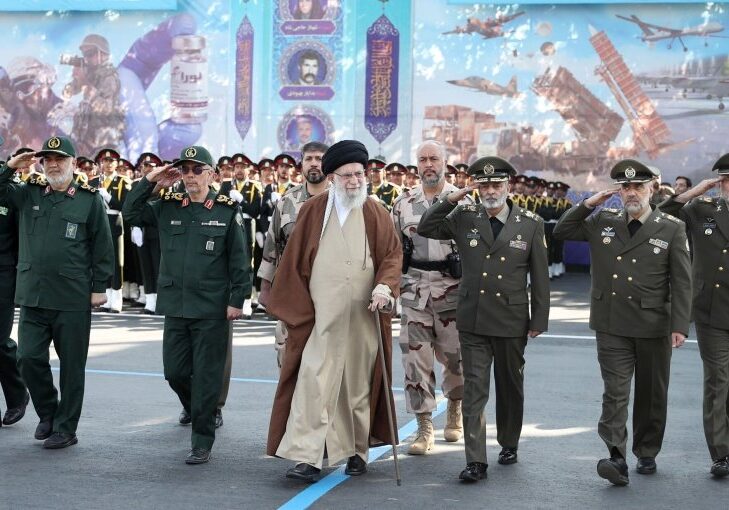Australia/Israel Review
Fraternal Rivals
Dec 19, 2014 | Jonathan D. Halevi

Hamas and Islamic State (ISIS)
Lt. Col. (ret.) Jonathan D. Halevi
The State of the Islamic Caliphate (known as the Islamic State, IS, ISIS, ISIL, or Daesh), which was declared by self-appointed caliph Abu Bakr al-Baghdadi, has fundamentally altered the reality of the Middle East and threatens to reshuffle the geopolitical cards, change the map of existing state borders, and undermine all the Muslim states as separate national entities.
The goal of re-establishing the caliphate led to the emergence of the global Muslim Brotherhood movement in Egypt at the end of the 1920s; of Hizb ut-Tahrir in the 1950s, and of other Islamic organisations. All of these without exception, including Hamas (the branch of the Muslim Brotherhood in “Palestine”) and the Islamic Movement in Israel, view the creation of the caliphate as a religious duty. In line with the prophecy of Muhammad the restoration of the caliphate is supposed to be the means to unify Muslims under the rule of Islamic law (shari’a), before proceeding to conquer Europe and impose the Muslim religion worldwide.
The Islamic State poses a weighty challenge to other regional actors. Not only is the vision of Islam being realised in Iraq and Syria, to which Islamic tradition assigns a special importance on the way to restoring Islam to its former glory, but the Islamic State continues to entrench its rule, fearlessly defying the United States and the West while attracting thousands of Muslims from all over the world and inspiring many millions more.
Leading Islamic organisations – the International Union of Muslim Scholars headed by Sheikh Yusuf al-Qaradawi, the Muslim Brotherhood, and Hizb ut-Tahrir – have rejected Caliph Baghdadi’s call to all Muslims to swear him their allegiance. In their view, the establishment of the caliphate did not meet the conditions Islam stipulates and hence is not valid. At the same time, these groups resolutely deny the legitimacy of the war being waged by the United States and the international and Arab coalition against the Islamic State.
Thus, for example, Sheikh Qaradawi wrote on his Twitter account: “I disagree with the Islamic State’s ideological conception and approach; but I will never agree to the United States being the one to fight it.” This is because the Americans “are not motivated by the values of Islam, but rather by their own interests even if blood must be spilled.”
Hizb ut-Tahrir took a similar stance when it unequivocally asserted that “participation in Obama’s imperialist coalition [against the Islamic State] is a grave crime.”
The Islamic State and the Palestinians
The Islamic State also exercises considerable influence in the Palestinian Authority of the West Bank and in Gaza, which is effectively under Hamas rule. When, on September 21, 2014, the caliphate’s spokesman Sheikh Abu Muhammad al-Adnani called on Muslims worldwide to engage in jihad against the infidels and kill them indiscriminately in any manner, including ramming them with cars and stabbing them with knives, the words resonated in the Palestinian camp. Over the past two months there have been many stabbing and vehicular attacks in sovereign Israel and in the West Bank. The most severe was the massacre in a Jerusalem synagogue on November 18, in which four rabbis and a policeman were murdered with pistols, meat cleavers, and knives.
That the caliphate’s power of attraction has not gone unnoticed by senior Hamas figures is apparent in articles in Hamas’ daily mouthpiece Felesteen, published in Gaza. Dr. Yusuf Rizaka, who was minister for holy places in the Hamas government headed by Ismail Haniyeh and from 2007 to 2014 served as an adviser to Haniyeh, praises the “private jihad” that has swept the younger generation in Jerusalem, and explains that certain religious commandments apply to every Muslim and that parental approval is not required to perform them.
Rizaka added:
The private jihad is a declaration of the death of the Arab regime and the Arab liberator [of the occupied lands] and of the rise of the Palestinian sphinx from the sands of the current reality in order to fight the war of the heroes against the enemy, the suicide warriors, and thereby to bring back to life the days of Yehiya Ayash [the Al-Aqsa Brigades commander who was behind a spate of suicide bombings]…
Dr. Abd al-Hamid al-Farani, a researcher at the Department of Religious and Wakf Affairs, admits in a Felesteen article on October 20, 2014 that “the main issue occupying the world today, including the Arabs and the Muslims, is the matter of the Islamic State and the ostensible danger that it poses.” According to him, “Its [the Islamic State’s] ostensible danger is not at all equal to the Zionist danger that has been looming over the heart of Palestine for over six decades.”
According to al-Farani, the Islamic State does not necessarily constitute a threat and the most important task is to liberate Palestine through armed struggle.
There are, however, unmistakable signs of the trend in favour of the Islamic State. In October, Palestinian security forces arrested dozens of Islamic State supporters, some of whom had tried to set up secret cells and carry out terror attacks. The Islamic State-inspired vehicular and stabbing attacks won widespread Palestinian support. Immediately after the news emerged of the massacre at the Jerusalem synagogue, joyful celebrations were held throughout Gaza and in the West Bank as well; among other things these included the traditional practice of handing out sweets to passersby.
The day after the massacre, Felesteen published a cartoon showing the headless corpse of a young Jew under the caption: “Here is Al-Quds [Jerusalem].” Cartoons in a similar vein, lauding the stabbing and car-ramming attacks, appeared on social networks of the different Palestinian organisations. This was a continuation of the “Daes” campaign – a play on the Arabic word daes (trample) and the Arabic acronym for Islamic State, Daesh. This “Run over the Jew” theme has also been expressed in songs and videos that extol the Palestinian murderers.
Hamas does not openly back the Islamic Caliphate, and its top officials only rarely refer to it officially. In a press conference in Tunisia on September 13, Hamas leader Khaled Meshaal was asked about the Israeli claim that Hamas is similar to the Islamic State. He replied:
The Islamic struggle movement Hamas presented an example to the region with its call from the beginning for moderation and the middle path in the interpretation of Islam, for dialogue, for a rational approach and for meeting an idea with an idea and an opinion with an opinion… Hamas gave the region an example of political moderation, of openness to the regional and international spheres along with adherence to the national principles of the Palestinian people.
Here Meshaal exercised great caution not to directly criticise the Islamic State. He did not mention it at all but instead explained the approach of Hamas.
Hamas Navigates Between the Islamic State and Iran
Neither Hamas nor Islamic Jihad, both of which are dependent on Iran as a strategic ally, is free to express direct or indirect support for the Islamic State, the cardinal enemy of the regime in Teheran. The references to the Islamic State that issue from Iran, including from Supreme Leader Ayatollah Ali Khamenei himself, are unequivocal and set clear red lines for the Palestinian organisations.
Hamas is committed at present to the temporary ceasefire in Gaza. But this period of reduced terror from Gaza, even as preparations for the next round proceed, has left a vacuum. The Islamic State has entered this vacuum in a jihadist surge as it achieves victories on the battlefield, fights the West without trepidation, enforces Islamic law, and promises to liberate Palestine after overthrowing the “treasonous” Arab regimes in Saudi Arabia and Jordan.
In the face of this challenge, which threatens to erode Hamas’ popular support and has already led Hamas operatives to leave the organisation for the Islamic State, Hamas is trying to open a front with Israel in the West Bank and Jerusalem or at least ride the wave of “private jihad” that has swept away many. This approach is consistent with Hamas’ strategic aim of dismantling the Palestinian Authority’s rule in the West Bank, taking over the Palestinian government, and making the West Bank a base for the next terror assault on Israel – to be waged from a position vastly superior to Gaza.
Thus Hamas has adopted the Islamic State’s terror methods without crediting the source of the inspiration. The more the tacit competition with the Islamic State over the Palestinian street intensifies, the more Hamas is likely to escalate these methods. In doing so, while also making repeated proclamations of a third Intifada, Hamas wants to be seen as persisting in the jihad against Israel, and it feels confident that because of the ceasefire Israel will refrain from attacking Hamas targets in Gaza in response to terror attacks that originate in the West Bank.
Lt. Col. (ret.) Jonathan D. Halevi is a senior researcher of the Middle East and radical Islam at the Jerusalem Centre for Public Affairs. © Jerusalem Centre for Public Affairs, reprinted by permission, all rights reserved.
Tags: Iran






